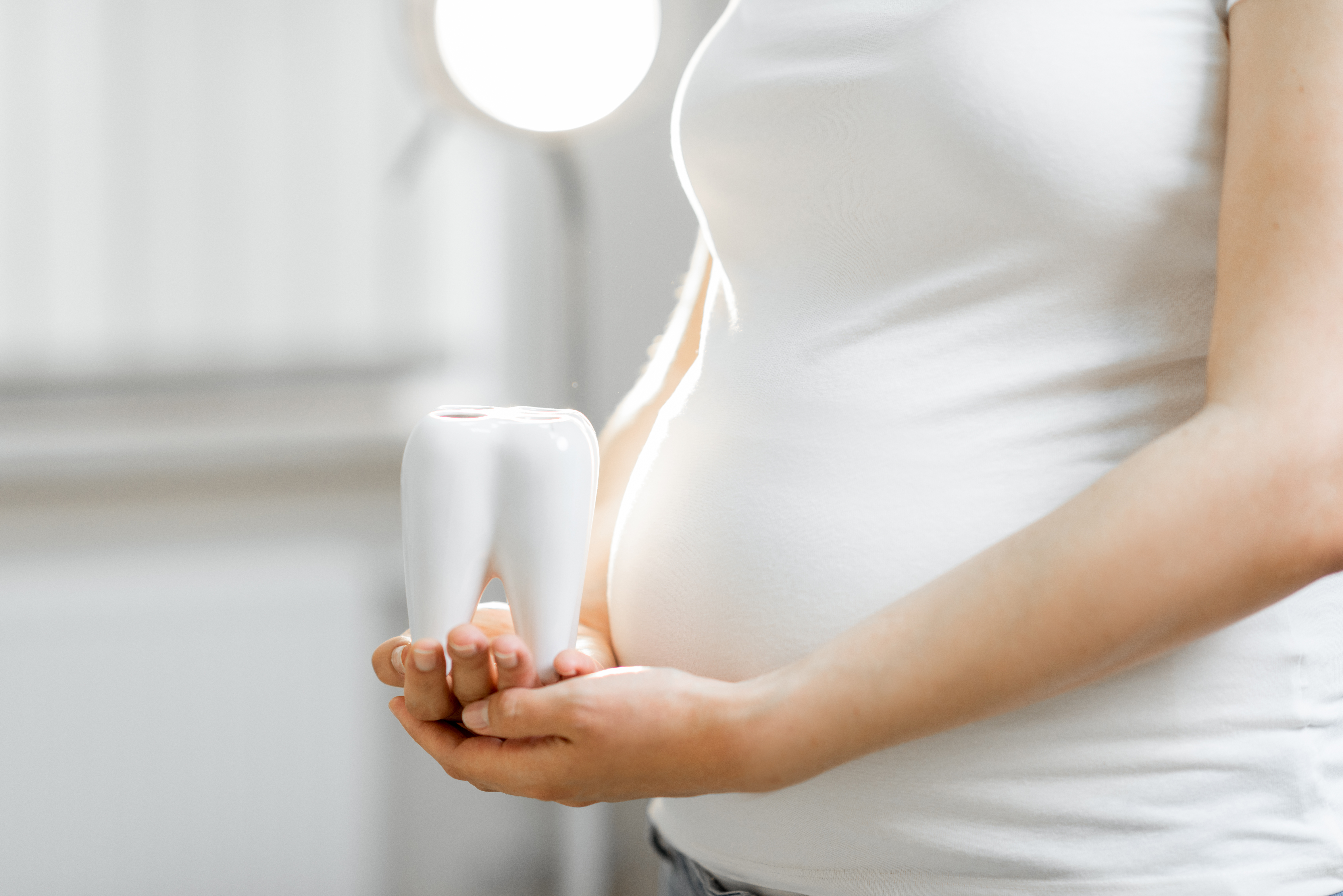Dental Care And Pregnancy

Dental care during pregnancy determines the health of the baby as well as the mother. Let’s find out more about the relationship between pregnancy and oral health and why taking care of your dental health during pregnancy is essential.
Importance of oral care during pregnancy
A couple of studies show the relationship between oral problems and pregnancy complications. The most common link is between gum disease and premature birth. Women with unhealthy gums are up to 7 times more likely to give birth prematurely. Premature babies are often born underweight and continue to face problems in their infancy years.
Pregnancy leads to several physical and emotional changes in women’s bodies. As a result, their dental health can also decline. You should pay particular attention to your oral health during and before pregnancy.
Pregnancy and its effects on the oral cavity
Various dental conditions are common during pregnancy. Fortunately, a qualified dentist can treat most of these conditions, even during pregnancy. For example, dentists can now even perform dental x-rays during pregnancy due to improvements in x-ray technologies.
Pregnancy gingivitis is a common oral issue during pregnancy. Hormonal changes due to pregnancy make the gums more susceptible to plaque. This leads to pregnancy gingivitis – a condition that causes pain and bleeding in the gums.
Cavities and tooth decay are common among pregnant women, mainly due to changed eating habits. People often crave sugary drinks and food during pregnancy. Coupled with poor dental hygiene, this can lead to tooth decay. The mother may even pass the harmful mouth bacteria to the child during or after pregnancy.
Pregnancy tumors refer to big lumps of inflamed gum tissues. While it’s called a tumor, it’s neither malignant nor does it spread. Pregnancy tumors are simply the body’s reaction to food and plaque in localized parts. Women with pregnancy gingivitis are more likely to get pregnancy tumors.
Morning sickness is the overall nauseous feeling many pregnant women have during the first and second trimesters. Morning sickness itself does not damage teeth or gums. However, persistent vomiting can affect the enamel. It can also prevent women from taking care of their dental health, especially in the morning when it’s the most important. Switching to a bland toothpaste can help some people; alternatively, others should attempt at least to rinse their mouth with an antibacterial mouthwash during pregnancy.
Dental habits during pregnancy
Your dental habits shouldn’t change significantly during pregnancy. You must continue to brush and floss twice a day and go for routine dental checkups. However, brushing can be a problem for some pregnant women who feel like throwing up every time they try to brush. Electric brushes can be helpful in such cases. If you don’t feel like brushing due to morning sickness, try a homemade rinse with baking soda and water.
It’s also essential to manage sugar cravings during pregnancy. For example, you can switch to fruit-infused drinks instead of sugary sodas and juices. Also, keep sugar-free snacks handy.
Specific vitamins and minerals can help you maintain oral health during pregnancy. Ask for supplement recommendations from your dentist if you feel you can benefit from them.
Following these steps and suggestions, you can ensure oral hygiene and health during pregnancy. Reach out to your dentist for help with specific pregnancy-related teeth and gum concerns.
